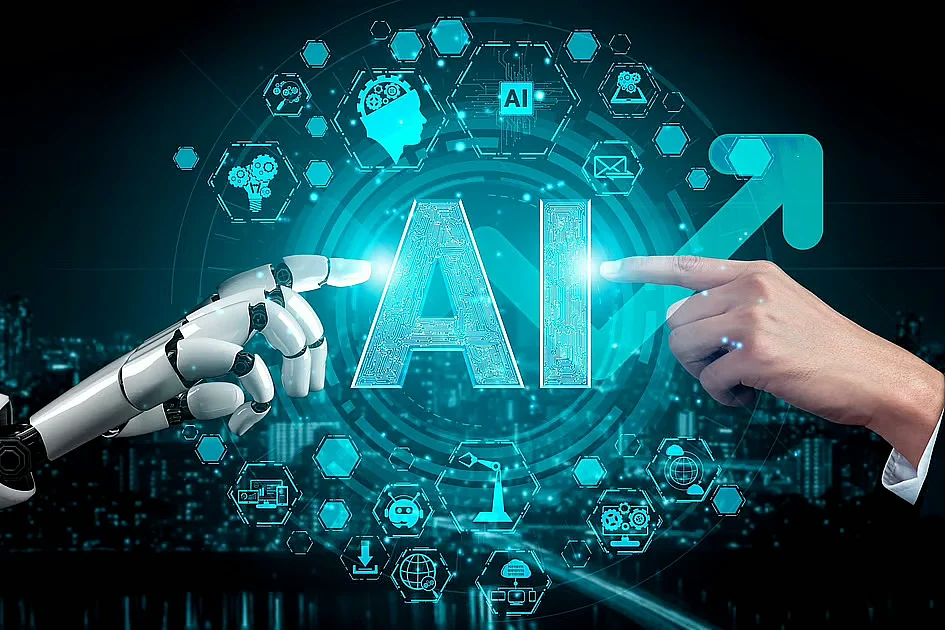AI Is Entering UAE Law Firms, But Experts Warn Of Errors And Limits
Artificial intelligence is making its way into legal offices in the UAE, helping lawyers save time on routine work. But while it offers efficiency, experts caution that the technology still carries risks and cannot replace human judgment.
Dr Abdullah Al Nasser, lawyer and legal consultant, said the role of AI in law is already moving beyond theory.“We are seeing real applications today. Systems can scan contracts, review large volumes of documents, and even check for legal precedents,” he said during a session at the International Government Communication Forum (IGCF) 2025, held on Day 1 at the Sharjah Expo Centre.“What used to take hours of manual review can now be done in minutes.”
Recommended For YouAccording to Al Nasser, this shift could free up lawyers to focus on strategy and case building. He noted that the technology has the potential to reduce costs for clients and improve the speed of legal services. However, he drew a clear boundary when it comes to core responsibilities.“The role of the lawyer and judge is built on interpretation, fairness, and values. These are things no machine can fully understand. AI can support us, but it cannot replace us.”
Stay up to date with the latest news. Follow KT on WhatsApp Channels.
Adel Fakher, lawyer and legal consultant, echoed these points and highlighted the risks of over-reliance on AI.“We must remember that this technology is still developing,” he said.“AI can produce errors, and if we depend on it blindly, the mistakes could be serious.”
Fakher explained that, unlike routine administrative tasks, legal judgment requires context and sensitivity.“A document might contain the correct words, but the meaning often depends on human interpretation. AI does not have the same understanding of justice, ethics, or social values,” he said.“That is why final decisions must always remain in human hands.”
Both experts agreed that the future of law will involve greater use of AI as a support tool. They see benefits in using AI to handle repetitive tasks that currently slow down legal processes, such as reviewing thousands of pages of case files or comparing contract terms. But they were firm that responsibility and accountability should never be transferred to a machine.
Al Nasser also pointed to opportunities for legal education and training.“Young lawyers should learn how to use these tools effectively. The profession is evolving, and those who adapt will be more efficient and competitive,” he said.
Fakher added that regulatory frameworks will also need to keep pace.“Just as AI is being integrated into other industries, the legal sector must have clear guidelines on its use. The goal should be to enhance efficiency while safeguarding fairness.”
The session reflected a wider theme at IGCF 2025, where technology and communication are seen as drivers of change across government and professional sectors. For the legal field, the message was clear: AI can be a powerful assistant, but it cannot and should not replace the human role in delivering justice.

Legal Disclaimer:
MENAFN provides the
information “as is” without warranty of any kind. We do not accept
any responsibility or liability for the accuracy, content, images,
videos, licenses, completeness, legality, or reliability of the information
contained in this article. If you have any complaints or copyright
issues related to this article, kindly contact the provider above.
Most popular stories
Market Research

- Japan Buy Now Pay Later Market Size To Surpass USD 145.5 Billion By 2033 CAGR Of 22.23%
- BTCC Summer Festival 2025 Unites Japan's Web3 Community
- GCL Subsidiary, 2Game Digital, Partners With Kucoin Pay To Accept Secure Crypto Payments In Real Time
- Smart Indoor Gardens Market Growth: Size, Trends, And Forecast 20252033
- Nutritional Bar Market Size To Expand At A CAGR Of 3.5% During 2025-2033
- Pluscapital Advisor Empowers Traders To Master Global Markets Around The Clock






















Comments
No comment